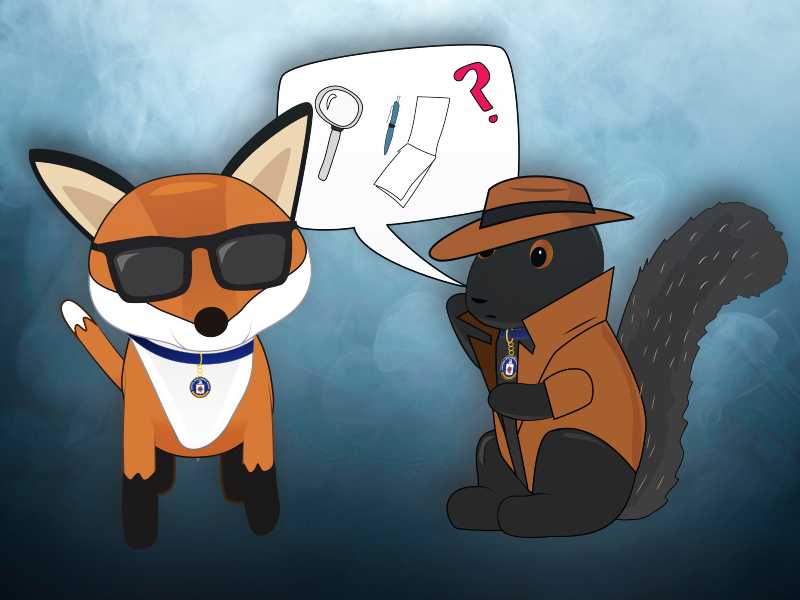
The spy world can be so… hmmm, how should we say it? Shadowy yet fascinating?
Many have read up on the history of espionage or binge watched spy movies and shows. Some may even have tried to go incognito at imagined spy hangouts donning a trench coat and greeting others with a breezy, “How do you do, fellow spies?”
But how can you tell if that mysterious acquaintance is the real deal? Well, if they refer to themselves as CIA “agents” instead of “officers,” you can rule them out right away. Digging deeper, real CIA officers use unique lingo that only those on the inside know. Read on to learn some everyday spy slang.
1) “Are you coming to Vespers?”
Here at CIA, if someone asks about Vespers, you can be confident they are not referring to evening church service. They aren’t referring to the cocktail that James Bond invented for his “cover” fiancé, Vesper Lynd, either. You could say, however, that it is inspired by both church and Bond.
Vespers refers to an informal gathering to share stories and best tradecraft practices, blow off steam, and build camaraderie—all while enjoying snacks and adult beverages. In other words, Happy Hour.
As far as we know, CIA’s Vespers began as a witty spin on the evening prayer of thanksgiving held by some Christian congregations. The concept was picked up by several bars around the world that incorporated Vespers into their names or serve Vesper drinks.
To boost morale and productivity among your appropriately-aged colleagues, might you try Vespers?
2) “What’s the BLUF?”
CIA has historical ties to the military, which explains some of the jargon that you hear a lot among Agency officers. One of the most often used acronyms within the Directorate of Analysis (DA) is BLUF, which stands for Bottom-Line Up Front.
DA officers seek to understand complex and evolving global issues to provide unique (yet objective!) analytic insights to those in the highest levels of the U.S. Government who do not have the luxury of time. So, whatever the format, analysts are always expected to deliver a concise BLUF.

3) “Does anyone have any alibis?”
This question is asked at the end of meetings across the Agency on a daily basis. Most of the time, it is met by a wall of silence, which we assess with high-confidence (just a bit of DA-speak) is in the interest of not prolonging a meeting. The question may even catch a brand-new CIA officer off guard, having only heard the word alibi in a criminal or legal context.
Somewhere down the line, the call for alibis began to be used on shooting ranges, referring to rounds of ammunition that remain in the weapon—jammed or unexpended—after a firing session. In that context, alibis are important because range shooters must account for all of their rounds as a safety measure. The expression became in vogue among uniformed military personnel in the late 2000s.
But back to the meaning of asking for any alibis at CIA. When someone asks a follow-up question or offers a public service announcement, new officers can reasonably conclude that “Any alibis?” is asking if there’s a need to clarify what was discussed in the meeting or raise miscellaneous topics.
We will never pinpoint when the alibis expression became fashionable at CIA, but it is part of a long tradition of military influence at Langley. Perhaps a senior CIA officer heard it at the Pentagon, started saying it at CIA, and it took off from there. Just one of those mysteries.
4) “We can neither confirm nor deny.”
Have you ever wondered where the legalistic phrase “We can neither confirm nor deny” came from? Wonder no more because it started right here at CIA. The line was the Agency’s response to press inquiries about the Hughes Glomar Explorer that had ostensibly been on a mission to mine manganese nodules from the ocean floor. In reality, CIA had the vessel built for a clandestine Cold War-era mission codenamed Project AZORIAN to retrieve a sunken Soviet submarine.
After the true nature of the mission was leaked in the press in 1975 and media outlets started asking, CIA realized that saying “yes” to some things and “no” to other things may give them too many breadcrumbs. To protect our mechanisms, our methods, and our people, we came up with the so-called Glomar response. It could come in handy for you one day as well. But don’t take our word for it. Consult with your lawyer.
5) “I heard some RUMINT...”
The Intelligence Community taps into various forms of collection that are truncated in everyday parlance. For instance, human intelligence is HUMINT and signals intelligence is SIGINT.
This explains the term RUMINT—also known as rumor intelligence—which is regularly bandied around the halls of CIA. To be clear, RUMINT is not, we repeat NOT, a real INT. Agency RUMINT typically revolves around close-held personnel decisions, upcoming policy announcements that will impact the workforce, or some juicy gossip.
As the rumor-mill trickles from person to person, details can become twisted, similar to the game of telephone. Officers (as the true intelligence professionals we are) use personal discretion to “vet” information. Just as a fun tidbit, RUMINT that proves to be false is sometimes categorized as ISINT.
Isn’t—get it? We’ll see ourselves out… but not before a little reminder:
The next time someone tells you to “spill the tea,” remember that until the information is corroborated, it’s just like spreading RUMINT.

